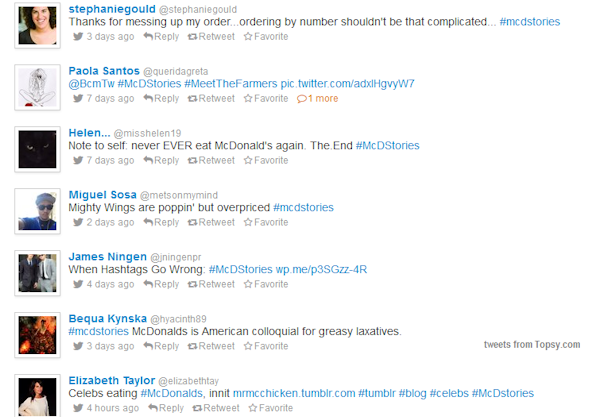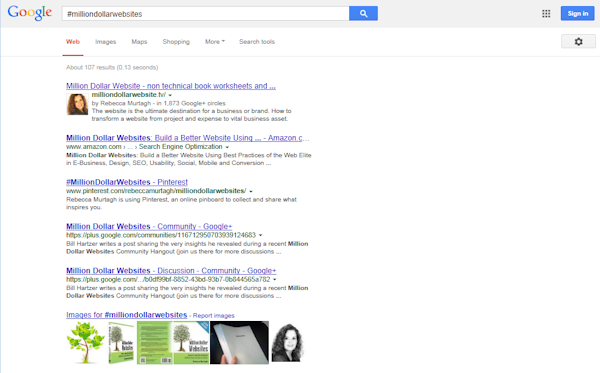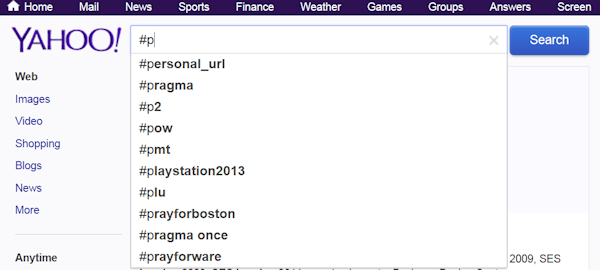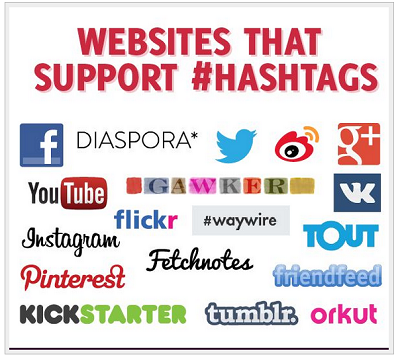
By now everyone has seen or heard hashtags used. Yes, I said ‘heard’ because hashtags have now infiltrated contemporary culture and advertising campaigns. One blogger recently ranted in a blog post about how the hashtag is ruining the English Language. Regardless of origin, or how you may feel about hashtags, they will not be going away any time soon.

The History of Hashtags
In the early days, hashtags were only used by the social media early adopters. As understanding grew of how hashtags work, they became widely embraced by the marketing and advertising industry. Today, the hashtag is part of pop culture.
Most people relate a hashtag with social media. Some see them as annoying disruptions to perfectly logical discussions. Others see hashtags as a way to express the thought of the moment.
The truth is, hashtags are widely misunderstood, misused and abused, as demonstrated in the humorous #hashtag skit video below of Jimmy Fallon and Justin Timberlake hashtagging their way through a conversation.
Examples of Hashtags Gone Wrong
Because a hashtag puts a word, acronym or series of words together without spaces, unfortunate interpretations turn good intentions into Epic #Failures. It pays to put a little effort into selecting the hashtag(s) you will use to communicate online.
Use With Caution
When topics begin to trend, people with seemingly have nothing else better to do than jump in and use the hashtag in ways that were never intended.
Epic Hashtag #Fails
As with anything you cannot fully control, a hashtag can take on a life of its own, or be hijacked, or become a “bashtag” as the following widely-reported faux pas.
#McDStories produced a stream of less than complimentary commentary by consumers in 2011. This hashtag has since become a case study of what can go wrong with hashtags and kept alive by consumer tweets using the #McDStories hashtag.

Other hashtag fails include:
- #ILoveWalgreens didn’t receive much love from consumers with this hashtag, which facilitated less than loving comments.
- #WaitroseReasons an upscale supermarket chain in the U.K. was the subject of sarcasm and pretentiousness by way of tweets by customers.
- #SusanAlbumParty, which was more often tweeted as #susanalbumparty – no need to explain this one further.
- #NowThatchersDead, which to many read #nowthatcherisdead indicating the singer Cher had passed – which was later debunked.
- #QantasLuxury, which was readily used by travelers who became sick with gastrointestinal illnesses and were hospitalized from food allegedly served by the airline.
Search Happens – Everywhere
Hashtags are an efficient method to find content related to specific topics, as well as the people talking about those topics.
Just as searches are conducted on platforms other than Google, Bing, and Yahoo, search also happens on social platforms. People search every day on Pinterest, Twitter, Google+, Instagram, YouTube, and other social platforms using words and hashtags with success.
When you optimize conversations, content, and updates with hashtags, they become more visible to others on social media platforms and search engines. A simple click or search for a hashtag will display those using that hashtag in conversation – instantly identifying an audience with common interests. The potential for using the hashtag is limitless and can be leveraged across platforms, or uniquely on each social platform.
Hashtags in Search
Recent Google updates have amplified visibility of hashtags in organic search results on Google.com as well as Google+ as demonstrated by the results of a Google search query for #milliondollarwebsites used to promote my book and Google+ Community.

Yahoo also displays #hashtag results as demonstrated in autocomplete:

Bing displays auto-complete results in the search bar as well.

How many times have you seen a Twitter trend or tweet with a hashtag on it? Clicking on the hashtag is a function of search. While clicking on it reveals all updates with that hashtag, along with related promoted tweets. The very same function holds true for queries in search engines.
Who Owns a Hashtag?
If you create a hashtag, you can register it on Hashtags.org, which also provides tracking. Twubs.com also allows you to register a hashtag. Although you can’t prevent others from using the hashtag, it may be useful to claim a hashtag that could be integral to discussion around a trademark, promotional campaign, or event.
Use It
You want others to use it as often as possible. If you’re using a hashtag for a specific event, be sure to include it on social media profiles, or better yet, on the related website in a post. Too often hashtags pick up momentum, peaking interest of others that can’t find out what the hashtag stands for.
Once upon a time, Twitter was the only place hashtags were used. Now, hashtags appear online and offline – all intended to promote engagement.
5 #SocialMediaTips for Using Hashtags
Hashtags can be extremely powerful when you understand how to make them work for you. You can use them on a variety of platforms, represented in this graphic by this graphic.

Image Credit: Intelligent HQ
Research
Want to know what your customers are talking about, what your competitors are doing, or how the media is treating a specific topic related to your product or service? Hashtags are extremely useful in identifying the frequency and reach of topics, discussions, and tapping into audience sentiment.
Facilitate Discussion
Hashtags are a great way to get people talking, and let them jump into the discussion. For example, #seochat is a popular stream of conversation used by those interested in search engine optimization on Twitter.
Hashtags are often among the most popular topics on various social platforms. Google+ calls them ‘Hot Topics’, and Twitter displays ‘Trending’. This is an easy way to identify popular streams of conversation that may be relevant to your goals, offering a way for you to insert yourself into the conversation and expand your social network.
Keep in mind that Facebook isn’t as transparent with hashtag activity, and LinkedIn doesn’t yet recognize hashtags.
Distribute Breaking News, Emergency Instructions and Information Related to Natural Disasters
For years, hashtags have been used to streamline communication around situations where other mediums of communication such as television, radio and print are not accessible or effective in reaching audiences.
Examples of this include the 2009 revolution in Iran when Iranians were able to solicit support in expressing themselves from Twitter users around the world using various hashtags; the tsunami in Thailand; Superstorm Sandy in the U.S. in 2012; the tornados in Oklahoma in 2013; and a multitude of similar tragedies.
Hashtags can also be used to share happy news and fun updates. For example, hashtags have been used to announce the birth of Prince William and Kate’s baby and annual posts by NORAD Ops Center using hashtags #Norad and #Santa tweets to provide updates on Santa’s journey around the world Christmas Eve.
Promote an Event or Conference
This is perhaps one of the greatest tools for event planners to pre-promote an event, promote the conference during the event and keep people connected after the event. I recently saw a thread in a LinkedIn Group discussing how hashtags expanded the conference to an audience 25x times that of actual physical attendees. The more people become engaged, the more likely they are to attend, or influence others to attend, watch live, or view after the fact.
This is true with events like the #grammys, #oscars, or trade shows and conferences like SES #SES, Pubcon #Pubcon, and a multitude of others, many of which can be found under the Hashtag Category Directory for Conferences / Tradeshows and Events on Twubs.
Use Hashtags to Reach Consumers
Some of the most popular hashtags are #blackfriday and #cybermonday, for obvious reasons. The hashtag takes on a life of its own when others share it.
Hashtags are also a great way to present special offers, anchor campaigns, and help customers promote the brand. Deciding which hashtags to use, or finding hashtags related to conversations you wish to participate requires a little bit of research, as trending hashtags can change quite frequently.
Hashtags are valuable when used properly. Below are a few resources to get you started in identifying and using hashtags to expand your reach and visibility online.

You’ll notice the addition of a trending hashtag immediately puts your update in the stream, enabling you to converse with those you know, and people you have yet to connect with.
#Hashtags Are Forever.
Everything on the Internet is forever. Hashtags are no exception.
One of the most effective tools to view the life of a hashtag through links, tweets, photos, videos and people (influencers) across the web is Topsy.com. Because Topsy allows you to search and track billions of conversations published on Twitter and the web, sorted by relevance or date, you can conduct research, performance and plan social media interactions to support your goals.
Summary
The hashtag more than a collection of characters – it is a tool to be used to reach new audiences, connect like-minded people, and facilitate streams of conversation.
Are hashtags worthy of being part of your social media strategy?








Leave a Reply
You must be logged in to post a comment.